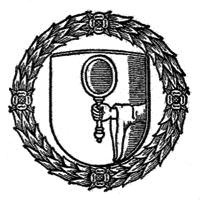Schwarz Fellowship at the Gennadius Library
for Research on Urban Architecture
The Schwarz Fellowship for Research on Urban Architecture supports innovative and cross-disciplinary research on architecture, urban planning, and the history of the built environment in Greece from 1821 to the present.
Eligibility: Practicing architects, or researchers who are either currently Ph.D.
candidates or recent Ph.D. holders within five years of receiving the degree. Open to all nationalities.
Fields of Study: Includes Architectural Design and Urban Planning, History of Architecture, History of the City, Historical Geography, and related fields. Projects should incorporate the holdings of the Gennadius Library (maps, topographical plans, landscapes, etc.) and other appropriate resources of the School.
Terms: A stipend of $11,500 plus room and board in Loring Hall, and waiver of School fees. It is expected that the applicant will maintain a physical presence at the Gennadius Library during the tenure of the appointment from early September to late May. A final report is due at the end of the award period, and the ASCSA expects that copies of all publications that result from research conducted as a Fellow of the ASCSA be contributed to the Gennadius Library. Fellows are expected to participate in the academic life of the School.
Application: Submit an online application form for the “Schwarz Fellowship at the Gennadius for Research on Urban Architecture.” An application consists of a curriculum vitae, description of the proposed project (up to 750 words), and three letters of reference to be submitted online. Student applicants must submit transcripts. Scans of official transcripts are acceptable.
Diversity and Advocacy Statement
The Graduate Student Committee of the Medieval Academy of America is staunchly committed to social justice, and to fostering an inclusive community of professionals where everyone feels welcomed, respected, valued and heard. We stand in solidarity with the Black Lives Matter movement in condemning the police murders of Black people that extend the long legacy of enslavement in the United States, as well as with other initiatives that combat ongoing legacies of imperialism, colonialism, hatred, and prejudice worldwide. As graduate students considering a wide array of professional tracks, we are dedicated to making the structural changes necessary for bringing about lasting freedom, equity, dignity, and respect for difference. As professionals working on the society, history, art, and cultures of the medieval period, we understand that there is no region or period within our fields of expertise in which these issues are not relevant. We acknowledge the urgency of practicing antiracism at individual and institutional levels. We thus pledge ourselves to taking concrete steps towards dismantling the structures of racism, the ideologies of white supremacy, and all systemic injustice, whether they exist in our committee or universities, and to re-examine our individual practices as educators, colleagues, mentors, scholars, and professionals.
New Horizons Graduate Student Research Grant
During the 2020-2021 term, the GSC was happy to award a special one-time New Horizons Graduate Student Research Grant. The program awarded four applicants $500 to support research projects that creatively navigated the research environment created by the COVID-19 pandemic.
The 2020-2021 New Horizons Grant awardees are:
Carly Boxer (University of Chicago): Carly has used the New Horizons Grant to continue her research of the United States Penitentiary (USP) Lewisburg, its architect, and the unusually high concentration of correctional facilities in central Pennsylvania. She will compare USP Lewisburg to other correctional facilities built between the 1920s and 1940s to contextualize these structures and their “medievalness” by examining medieval precedents for architectures of confinement. The New Horizons Award allowed Carly to acquire relevant books on the history of prison reform, prison architecture, medievalism in vernacular architecture in the United States, and on the medieval Italian palazzos on which USP Lewisburg’s design was based.
Emmalee Dove (University of Virginia): Emmalee and UVA undergraduate Lauren Kim were awarded the New Horizons Grant to continue working on their project, Digitized Devotion. This project offers free access to collected data from over 500 Books of Hours and related manuscripts. Special attention is given to information about the text and images that appear in each of these manuscripts. The website also has a feature that grants those who are interested in learning more about the topic the ability to search for specific images or text. Emmalee and her team used the New Horizons Award to purchase books necessary for moving the project forward during the COVID-19 pandemic, as well as to purchase and renew the project’s domain name. The initial version of Digitized Devotion is up and running: digitizeddevotion.com.
Ryan Low (Harvard University): Ryan will use the New Horizons Grant to create an online database of extant notarial registers in the former counties of Provence and Forcalquier, the Dauphiné, and Savoy. This resource will eventually allow scholars to search for registers by shelf-mark, notary, or commune, and they would be able to contribute details such as folio counts, watermarks, prefatory benedictions, notarial signatures, and more. Out of the available data, Ryan has constructed the local instance of a FileMaker Pro relational database and populated it with the information available (13,502 notarial registers).
Jenna McKellips (University of Toronto): Jenna used the New Horizons Award to help pay actors and interviewees for the project. In her personal translation of the Digby Mary Magdalene, she inserted verbatim anonymous interviews as monologues. For these interviews, Jenna approached various individuals with historically marginalized genders (trans and nonbinary folks, as well as women). The project culminated with a Zoom performance by actors who self-identified as having historically marginalized genders. Two conference presentations–one at the Medieval English Theatre Conference and one at Leeds 2021– resulted from this production. The project has a website: https://www.marymagdaleneproject.com/
Click here for more information.

 Editors:
Editors:

